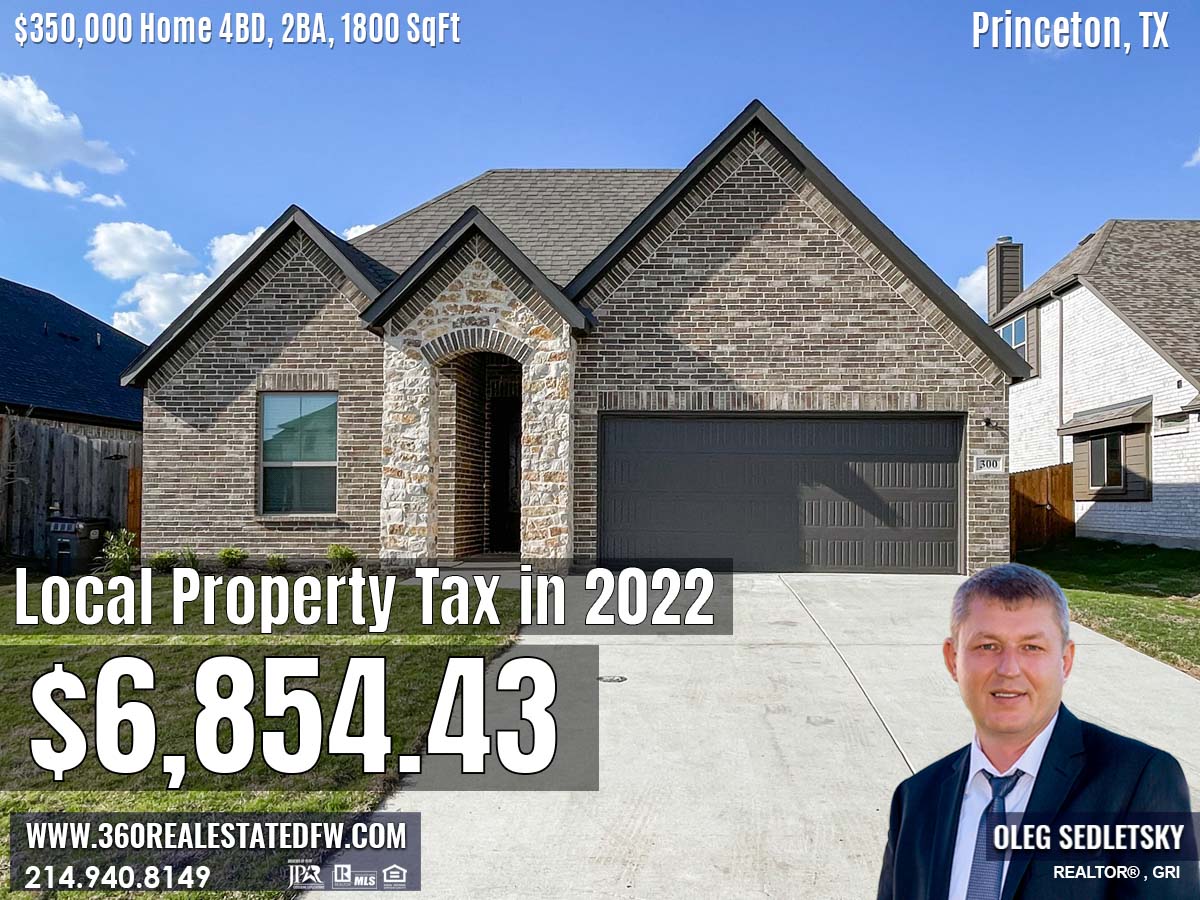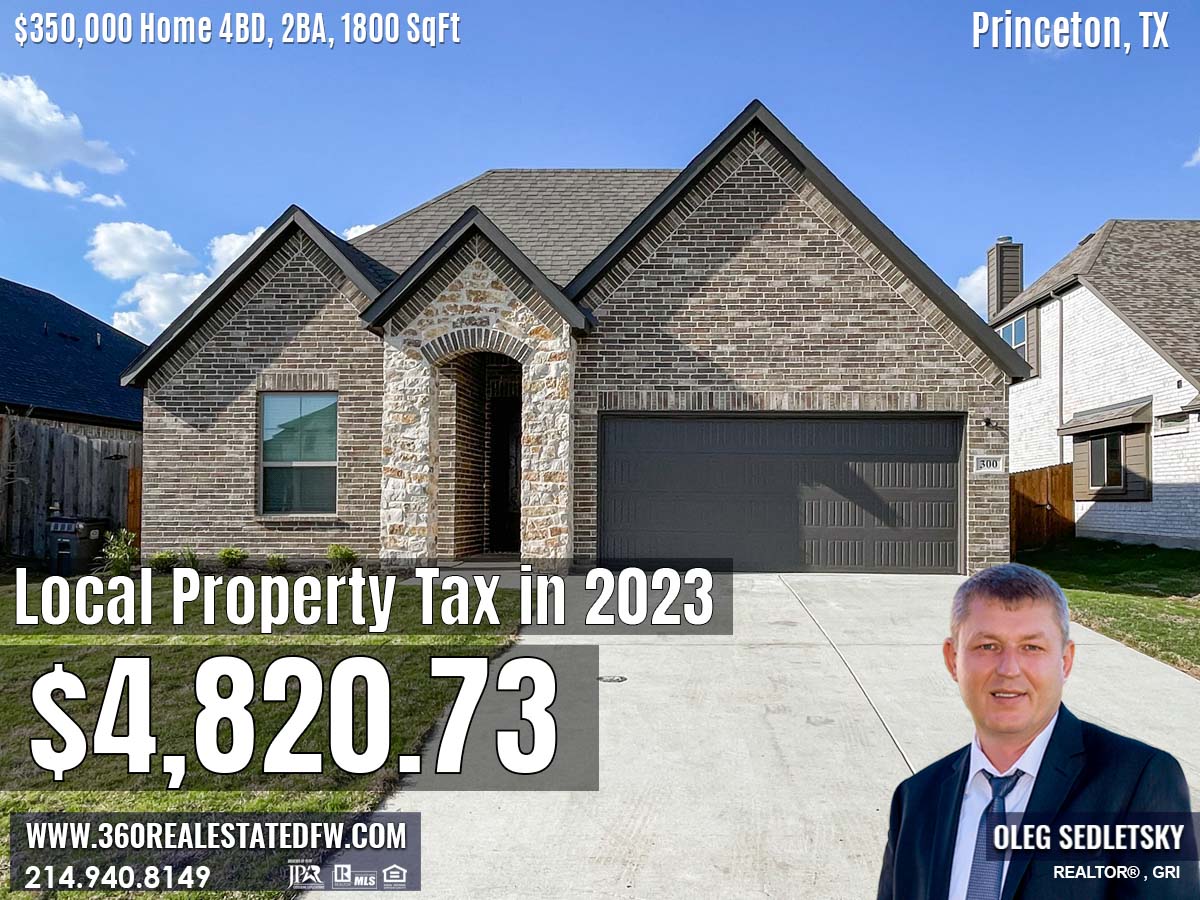The $18 billion property tax cut in Texas is now a reality!
Hello, future Texans! Big news is afoot. In the November 2023 Elections, The Lone Star State voters have approved a game-changing property tax cut. This isn’t just a small-scale modification but a historic one with grand implications for all, especially for first-time homebuyers like you.
Let’s delve into the nitty-gritty of this tax cut and how it’s set to influence your home-owning experience in the Dallas area.
What factors contribute to the implementation of the Texas Property Tax Cut?
Texas is undeniably an economic powerhouse, demonstrated by its impressive $33 billion surplus in the state budget. This remarkable achievement speaks volumes about the financial strength and prosperity of the Lone Star State.
To gain a thorough understanding of how the extraordinary property tax reductions came about, I encourage you to explore the official press release published by the Governor of Texas. It offers a detailed analysis of the specifics that are sure to captivate your interest.
Governor Abbott Signs Largest Property Tax Cut In Texas History
https://gov.texas.gov/news/post/governor-abbott-signs-largest-property-tax-cut-in-texas-history

What is the property tax in Texas?
First of all, Texas has NO STATE PROPERTY TAX. Property taxes are assessed and collected at the local level, primarily by county appraisal district taxing units. These taxes play a crucial role in generating revenue for local governments to support a wide range of essential services, such as education, infrastructure development, public safety, and more. They are a vital source of funding that enables communities to thrive and provide necessary amenities and resources to their residents.
What does the property Tax in Texas include?
Taxing units, also known as entities, encompass a variety of organizations such as cities, schools, hospitals, water districts, and special districts (muds & pids). These local taxing entities play a crucial role in determining the required funding to provide essential public services. Property tax rates are then established based on the budgets set forth by these taxing entities.




Can homeowners reduce or avoid paying property tax in Texas?
All property is subject to local taxation unless exempted by state or federal law, either in whole or in part. Full exemptions can be granted for public properties or properties owned by qualifying organizations such as churches, schools, or charitable organizations.
Examples of Property Tax Exemptions in Texas.
Examples of partial exemptions include the homestead exemption, exemptions for individuals over the age of sixty-five, and exemptions for disabled veterans.
These partial exemptions serve to reduce the taxable value of qualifying property while maintaining the original intent of the taxation system.
What does the Historic $18 Billion Property Tax Cut mean for homeowners?
Through the constitutional amendment, school districts will receive $7.1 billion to alleviate their tax burden by substituting local revenues with state funds, a process referred to as “compression” by lawmakers. As a result, the tax rates utilized by school districts to cover operational expenses, including teacher salaries, will decrease by 10.7 cents per $100 of property value.
The constitutional amendment also raises the homestead exemption from $40,000 to $100,000, which means an additional $60,000 of a property’s taxable value will be exempt from property taxes.
The homestead exemption will be $110,000 for Texas homeowners 65 and older.
Homeowners with disabilities will also be eligible for the $110,000 exemption, regardless of age.
Approximately 5.7 million Texas homeowners will qualify for the homestead exemption!
Here’s an illustration of how the property tax cuts will impact the property tax situation in Princeton, TX which is located in Collin County.
Princeton, TX Property Tax Rates – (FISCAL YEAR 2022)
City: 0.534543
Other Entities: Princeton ISD 1.442900
Collin County 0.152443
Collin College 0.081220
Total of all entity tax rates (per $100 assessed value) 2.211106
Property tax on a $350,000 home 6,854.43 (with $40,000 homestead exemption)

Princeton, TX Property Tax Rates – (FISCAL YEAR 2023)
City: 0.440226
Other Entities:
Princeton ISD 1.257500
Collin County 0.149343
Collin College 0.081220
Total of all entity tax rates (per $100 assessed value) 1.928289
Property tax on a $350,000 home is $ 4,820.73 (with $100,000 homestead exemption)

See Collin Central Appraisal District Tax Rates and Exemptions
https://www.collincad.org/ccad/reports/rates_exemptions.php
When will the Tax Cut come into effect?
You must be eager to know when these tax cuts will take effect. The good news is they will be applied to landowners’ 2023 tax bill, which means you can expect more than $2,500 in tax savings over the next two years if you’re a typical Texas homeowner.
How the Tax cuts benefit First-time homebuyers in the Dallas area?
If you’re a first-time homebuyer in Dallas, you’re in luck! The property tax cuts come with some sweet advantages for you. The increase in the homestead exemption means you’ll be able to save big bucks, making homeownership way more affordable. And let’s be real, saving money is always a win!
And here’s the cherry on top: these property tax cuts might also have a ripple effect on the real estate market. More available properties and a livelier market? That means you’ll have more options to choose from. How’s that for a win-win?
But hey, I get it. Home buying can be a bit tricky, especially if you’re a first-timer. That’s where I come in! As a local Dallas area Realtor, I’m here to guide you through the process and help you make sense of all the potential savings and benefits these tax cuts bring to your home buying experience in Dallas. So, let’s chat!

Moving to Texas
With these property tax cuts, Texas, and specifically the Dallas area, is becoming an increasingly attractive place for new homebuyers. The real estate market here is vibrant and inviting, with the tax cuts adding another layer of appeal. Need help navigating this market? As your friendly local realtor, I’m here to make your move to the Dallas area as smooth as possible.
Conclusion
The property tax cut in Texas is a game-changer, bringing with it substantial savings for homeowners. For first-time homebuyers in Dallas, like yourself, this is an opportune time to stake your claim in the Lone Star State. Ready to start your home-buying journey? Reach out to me, and let’s turn your Texas dream into reality!
Are you ready to experience the joy of homeownership in the vibrant Dallas-Fort Worth area?
Whether you’re in search of an existing home or a brand-new construction, rest assured that I’m here to assist you every step of the way.
With a dedicated Realtor by your side, the home-buying process becomes a breeze. Say goodbye to stress, and let me handle all the intricate details on your behalf.
Getting the guidance you need is as simple as filling out a brief questionnaire on my Homebuyers contact form. From there, I’ll take care of everything, ensuring a seamless and hassle-free journey towards finding your dream home.
Call/Text 214.940.8149

The Buyer’s Agent Duty
READ: Texas Real Estate Commission Information About Brokerage Services
AS AGENT FOR BUYER/TENANT: The broker becomes the buyer/tenant’s agent by agreeing to represent the buyer, usually through a
written representation agreement. A buyer’s agent must perform the broker’s minimum duties above and must inform the buyer of any
material information about the property or transaction known by the agent, including information disclosed to the agent by the seller or
seller’s agent.
A BROKER’S MINIMUM DUTIES REQUIRED BY LAW (A client is the person or party that the broker represents):
– Put the interests of the client above all others, including the broker’s own interests;
– Inform the client of any material information about the property or transaction received by the broker;
– Answer the client’s questions and present any offer to or counter–offer from the client; and
– Treat all parties to a real estate transaction honestly and fairly.
TO AVOID DISPUTES, ALL AGREEMENTS BETWEEN YOU AND A BROKER SHOULD BE IN WRITING AND CLEARLY ESTABLISH:
– The broker’s duties and responsibilities to you, and your obligations under the representation agreement.
– Who will pay the broker for services provided to you, when payment will be made and how the payment will be calculated.
TYPES OF REAL ESTATE LICENSE HOLDERS:
– A BROKER is responsible for all brokerage activities, including acts performed by sales agents sponsored by the broker.
– A SALES AGENT must be sponsored by a broker and works with clients on behalf of the broker.
Latest from Dallas Real Estate Blog
– Texas Homebuyers Tips, Tricks and Lifehacks
– New Construction Homes in Dallas TX
– Mortgages for Homebuyers and Investors in Dallas-Fort Worth











